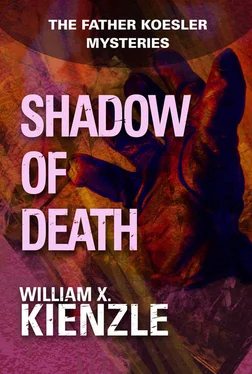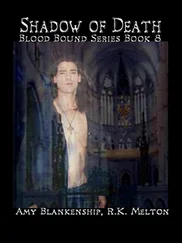“Oh—” That was as far as Koesler got before Lennon hastily led him away, as the officer looked after them quizzically.
“Father,” she said, “you got a look at that man . . . and you know what that hairstyle is called, don’t you?”
“Well, yes. It’s not corn rows. It’s dreadlocks. It’s what happens when some blacks wash their hair, if it happens to be very long, and they just let it dry out without any additional treatment.”
“Very good, Father.” Lennon sounded like an elementary school teacher. “And I suppose you also know who wears their hair that way as a matter of conviction?”
“Well, yes . . .” Koesler was beginning to feel like a pupil who was doing very well in school. “They call themselves Rastafarians.”
“Right. It’s just as I suspected. You know all this and I know all this and in a matter of an hour or so at most I will make sure the Italian authorities know all this.
“But, for the moment, Joe Cox doesn’t know all this. Now in just a few minutes, Joe and I will be filing our stories to Detroit. Joe will write—modestly—of his brave participation in the event. But he will not know of the possible connection with Rastafarians. And I will. Are you getting the picture?”
“Yes, of course. After all, I used to be actively involved in journalism. Even if it was with the weekly Detroit Catholic and not a daily. You want your scoop. But what about the police investigation?”
“Father, it’s a matter of minutes—an hour at most. Just as soon as Joe files his story—and, if his track record holds, that will be even faster than I file mine—I will go to the police and fill out the picture. It won’t impede their investigation and I’ll still have my scoop. Then, we’ll just sit back and let Joe wait till his angry editor cables him before he gets the picture.”
“I see. But I thought you were . . . uh . . . friends!”
There might have been some Detroiters who were confused over whom Henry Ford II was married to, but almost everyone knew that Cox and Lennon shared almost everything but their scoops.
“Everything, Father, is fair in love, war, and journalism.”
4.
The two men strolled along the Via di San Gregorio. They walked slowly, deliberately, only peripherally aware of the Forum ruins they were passing, so absorbed in conversation were they.
“It all happened so quickly—so unexpectedly, I should say,” Father Koesler was explaining, “that we were all pretty dumbfounded. All of us, that is, except Joe Cox, who chased after the guy.”
“Yes,” Inspector Koznicki nodded, “and from the description he gave of the man, Mr. Cox is fortunate not to have caught up with him.”
“I think he probably wanted more to interview him than apprehend him!” Koesler, smiling, shook his head at the memory, and then his face grew solemn: Cardinal Gattari had survived the immediate attack, only to die shortly thereafter enroute to the hospital.
Koznicki, hoping to hearten his companion, spoke again. “I must say, Father, your phone call to Father Ouellet in Toronto was an inspired bit of detection.”
“More a lucky coincidence. While I was talking with Pat Lennon about how the assailant wore his hair in dreadlocks, I recalled that Father Ouellet had described Cardinal Claret’s killer as a black man with his hair in a ‘natural.’ As a matter of fact, that was the word Joe Cox used to describe the man he chased. He said the man had a ‘natural,’ then corrected himself.”
“But not perfectly accurately.”
“By now he’s been enlightened. Anyway, when I phoned Father Ouellet after lunch—he was just about to go over to the cathedral for the early morning Mass—I asked him to describe the man’s hair, and, sure enough, it was dreadlocks—although Father Ouellet had never heard of that term.”
“I am sure that added information will be a help to the Toronto and Rome police who are investigating their respective homicides.”
Koesler wondered whether his friend’s statement meant that the murders of two Cardinals were the purview of the Canadian and Italian police and none of his or Koesler’s business. Koesler hoped that was not the case.
“I think there’s more to it than that, Inspector—oh, look over there!” He pointed to where, evidently just a few minutes before, two automobiles, a Fiat and a Volkswagen, had collided. There did not appear to be much damage to either vehicle. But an unwonted crowd of men had gathered at the scene. Only a small percentage could have actually witnessed the collision. Yet, here were all these men, arguing angrily. Some were even becoming physical, pushing and shoving. The only explanation for this precipitate brouhaha was that apparently one of the cars had been driven by a woman. And what a woman! Blonde, taller than any of the men, and busty enough to be fairly popping from her light dress. She paid little heed to the commotion about and because of her, but appeared to be waiting for the hubbub to die down so she could drive away.
Koznicki laughed heartily. “I have always thought that to make an Italian movie, all one had to do was walk down a street in Italy with a camera on one’s shoulder. I believe the cinéma verité was conceived with Italy in mind.
“But, Father, you were saying—?”
“Maybe I’m being an alarmist, but how many times have there been attempts on the lives of Cardinals? Oh, perhaps in the Middle Ages, but not now . . . not today. Cardinals grow old and slip away quietly in their sleep. Yet in the past few weeks, two Cardinals have been murdered, and another attacked. Are these events connected? Will there be more?”
Koznicki grew reflective. He had learned to trust his clerical friend’s deductive powers as well as his intuition. But there seemed little if any connection between these attacks. And, even if there were a link, technically, as a foreigner in this country it was none of his concern, even though he was a homicide detective.
“I really cannot find any connection here, Father,” he said, at length. “It is more than likely that the attack on Cardinal Claret was, as the Canadian police suspect, the random act of a young hoodlum out to snatch some media attention. A nobody trying to become somebody.
“That almost certainly was so in Cardinal Boyle’s case.
“And, you see, Father, that sort of act very unfortunately has a way of building upon itself. Now, this morning, the dastardly act was repeated in the case of Cardinal Gattari. The only link I see is that with Cardinals Claret and Gattari, each of their assailants had dreadlocks. And dreadlocks are not that unusual. Do you see anything beyond that, Father?”
“I guess I’d have to grant you that the attack on Cardinal Boyle was—as you describe it—a solitary act. But there is something at work here, I think.
“There is, of course, no way of predicting with any certitude who the prime candidates for the Papacy are, let alone who will actually be the next Pope. But there is gossip and talk and news—and, gradually, a consensus builds.”
“Yes?” Koznicki’s interest was piqued.
“Well, according to nearly everyone, Cardinal Gattari was, by far, the front-runner, the top favorite to be elected the next Pope. Of course, that would depend on a lot of imponderables. Pope Leo XIV, of course, would have to die. And he would have to die while Cardinal Gattari was still young enough to continue to be the favorite.”
“What does that have to do with—”
“My next point. Next in line after Gattari was Cardinal Claret.”
“A Canadian?”
“The Italian succession has been interrupted. The Papacy, at least for the foreseeable future, should be internationally attainable.
Читать дальше












